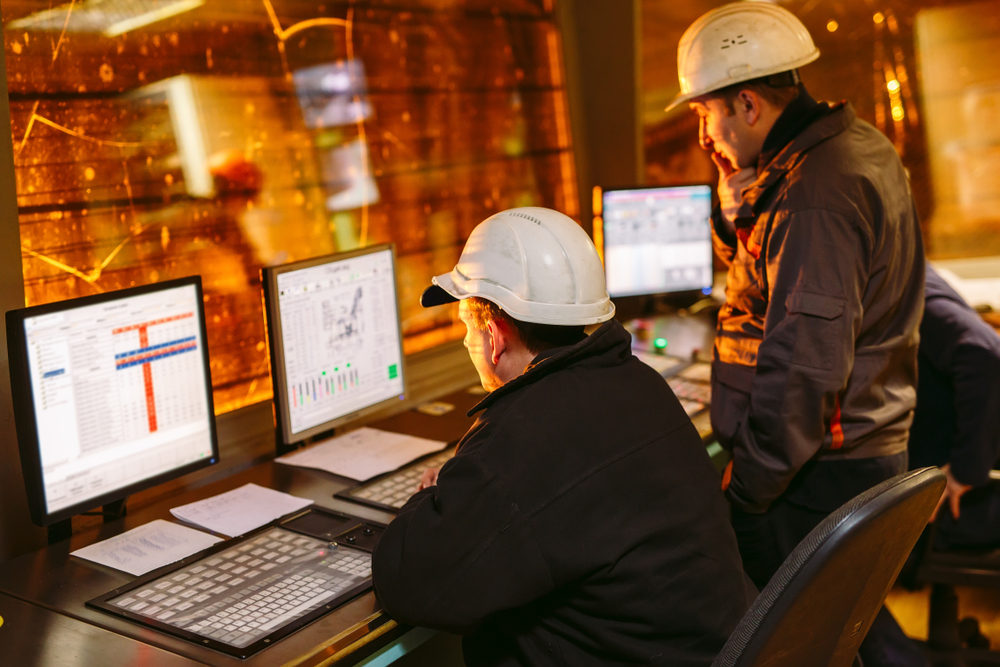
Industrial furnaces are core to the foundry and steel industry. There are numerous factors that influence the overall output of a foundry; the number of staff, the raw materials available, and most notably furnace performance. The furnaces used in foundries need to be efficient and safe with extended lifespans. Due to the extremely high temperatures that exist for long periods of time each day, furnaces undergo intense pressure and can be at increased risk of damage and malfunctions. The useful life is required to be maximised in order to ensure long-term and cost-effective operations within a foundry.
Foundry and steel is crucial for many other industries. The castings produced are vital components of manufacturing supply chains, as well as high-demand sectors such as automotive and construction. The global scale of the foundry and steel industry is colossal, and it continues to be put under pressure due to increasing demand. Therefore at Elmelin, we believe its key to offer our support by providing outstanding high temperature insulation solutions including mica sheet electrical insulation for the variety of furnaces used within the industry.
Where insulation is required for furnaces
Furnaces reach extremely high temperatures as they’re required to melt down various metals, namely steel, into liquids for casting. Due to these temperatures, there is a risk of metal penetration through the working lining, which can cause severe harm to the furnace and become a safety hazard. If penetration is to occur, the maintenance cost and loss of production during the downtime can be steep. It’s therefore highly important to have high temperature furnace insulation.
Insulation used within these furnaces helps to further improve the overall performance by protecting them against heat damage over time. High temperature furnace insulation can extend the lifespan of a furnace significantly, requiring less maintenance and fewer periods of time out of commission. We have been working with the foundry and steel industry closely for over a century, using our experience and expertise to develop mica-based insulation solutions. Utilising mica’s superior thermal and physical properties, our solutions extend the useful life of furnaces, as well as reducing time and cost spent on maintenance.
Mica properties for furnace insulation
Mica have a variety of properties that make it ideal for high temperature insulation. The superior thermal properties are ideal for furnaces and foundries; reinforced with silica and glass, mica laminates and rolls are used in furnaces that melt iron and aluminium. The correct processing temperature that is required varies depending on the metal, however the role of our mica-based solutions remains the same; reduce the amount of energy and power required to reach these processing temperatures.
Pure phlogopite mica can withstand temperatures up to 1000°C. It is commonly used in mica-based insulation for furnaces as the temperatures can reach such high levels. Mica laminate solutions can withstand even higher temperatures of up to 1260°C. As well as being resistant to high temperatures, mica is also a dielectric, withstanding up to >20 kV/mm. As well as this, it has dielectric capabilities for storing charge in an electrostatic field.
Further properties that make mica ideal for furnace insulation include being non-flammable and non-hazardous, therefore safe to use, as well as being highly durable and easy to cut, shape and install. Safety is a major focus for foundry and steel industry, both safety for the equipment itself and also the foundry employees using it. Working with heavy equipment in high temperature environments means an increased risk of accidents and harm to individuals.
Slip plane characteristics
Mica as a material also has multiple unique properties that make it an ideal slip plane material for furnaces and other foundry equipment. A slip system is the interaction of slip plane and slip direction, which when in motion can lead to dislocation occurring. The slip plane material is used in a furnace lining, with the more superior slip planes being more effective and leading to a more efficient melting process.
Mica has excellent slip plane characteristics; it’s thin but tough, which allows the furnace linings to expand and contract. Furthermore, it is also protected against abrasive damage, a fairly common source of mechanical faults to industrial furnaces, such as damaged coil grouts. Essentially, when mica is manufactured into laminate form, its slip plane characteristics and various other ideal properties provide a protective layer for the furnace lining.
These slip plane characteristics further benefit the furnace lining by improving overall throughput. The life of the lining is extended due to the extra protection and therefore the quantity of metal melted per lining is increased. Once a lining requires replacement due to wear and tear, our mica-based material reduces the downtime of the furnace, with it being easy to push out and not requiring any patching.
Conclusion
At Elmelin, we manufacture and supply a range of mica-based insulation solutions for various industries. Mica is core to many of our products; its thermal and physical properties make it ideal for high temperature insulation, and therefore furnace application. It can be manufactured into different products, to fit unique specifications. We combine mica with other materials and products resulting in outstanding insulation solutions.
The foundry and steel industry is of huge global importance, and demand will continue to grow. We help foundries by providing our high temperature solutions for their furnaces. It is our goal to help extend the useful life of the furnaces, the efficiency, and the safety, all in a sustainable manner. If you are interested in finding out more about our products and solutions, or have any questions for our team, please do not hesitate to get in touch for a friendly chat.
